15 Superfoods Said To Naturally Improve Your Eyesight
Having good eyesight is essential for living a healthy, active life. While some eye problems come with age, eating the right foods can improve or prevent many. Superfoods are rich in nutrients that help keep your eyes strong and healthy. These foods are not only good for your vision but also your overall health. Having them in your daily diet is a natural way to protect your eyesight. Here are 15 superfoods that can naturally boost your vision.
Carrots
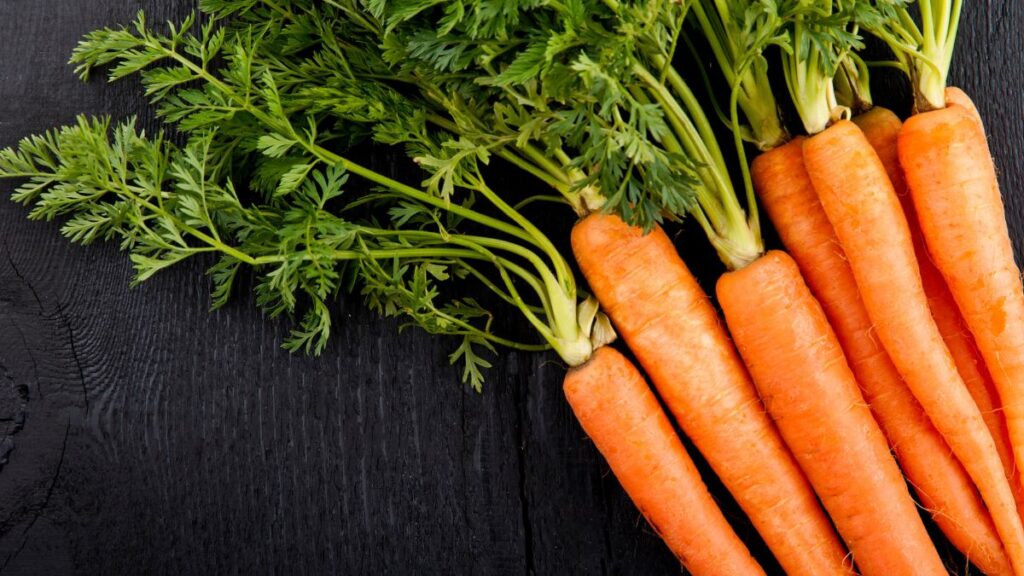
Carrots are one of the best-known foods for eye health. They are rich in beta-carotene, which the body converts into vitamin A, a key nutrient for maintaining good vision. Vitamin A helps protect the cornea and the eye’s surface and is essential for preventing night blindness.
Carrots are also packed with antioxidants that fight damage from free radicals, which can harm the eyes over time. Adding carrots to salads, and soups, or enjoying them as a snack can give your eyes the nutrients they need. Regular consumption can help improve overall eye health.
Spinach
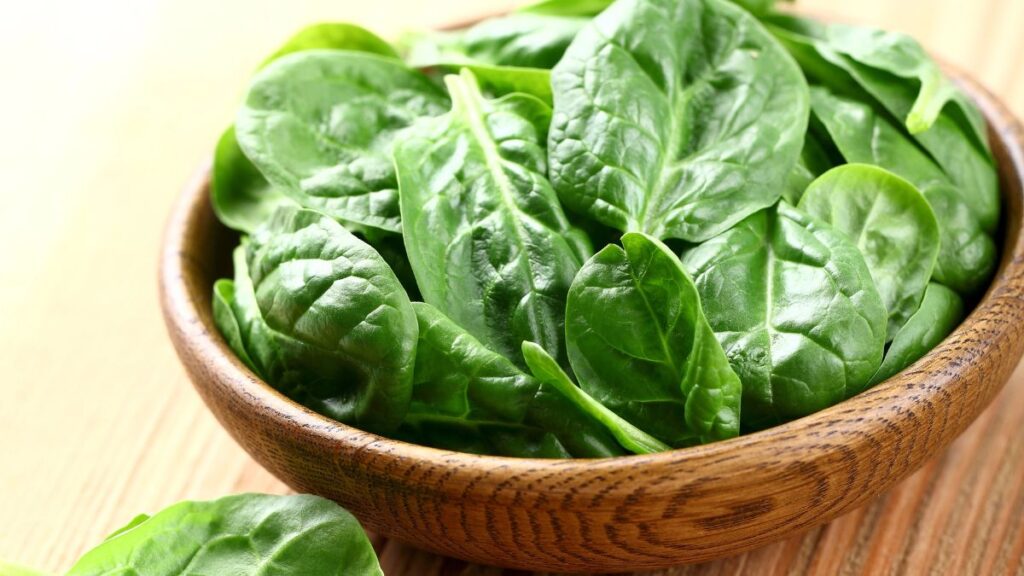
Spinach is loaded with lutein and zeaxanthin, two powerful antioxidants that are known to protect the eyes from harmful light and UV damage. These nutrients help filter out blue light, which can cause damage to the retina over time. Spinach is also high in vitamin C, which helps reduce the risk of developing cataracts.
Eating spinach regularly can improve your eye health and lower the risk of age-related macular degeneration. You can enjoy spinach in salads, smoothies, or as a cooked side dish. It’s an easy and tasty way to keep your eyes sharp.
Blueberries
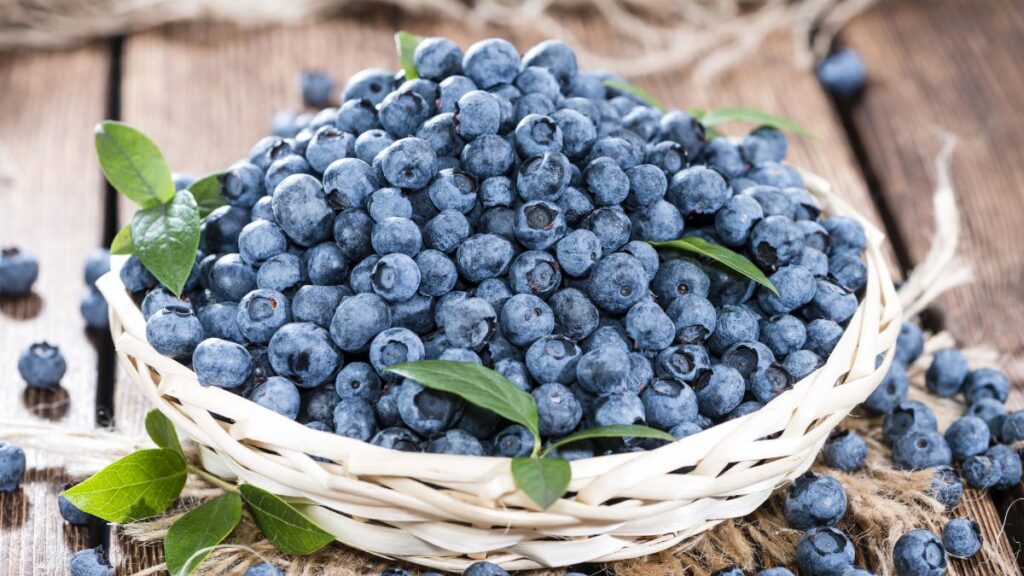
Blueberries are small but mighty when it comes to eye health. They are packed with antioxidants, especially vitamin C and vitamin E, which are essential for reducing the risk of cataracts and macular degeneration. Blueberries also contain anthocyanins, which improve blood flow to the eyes and protect the retina from damage.
Eating blueberries regularly can improve your night vision and help you see better in low-light conditions. They are perfect to add to smoothies, and cereals, or enjoy as a snack. These delicious berries can give your eyes the boost they need.
Sweet Potatoes
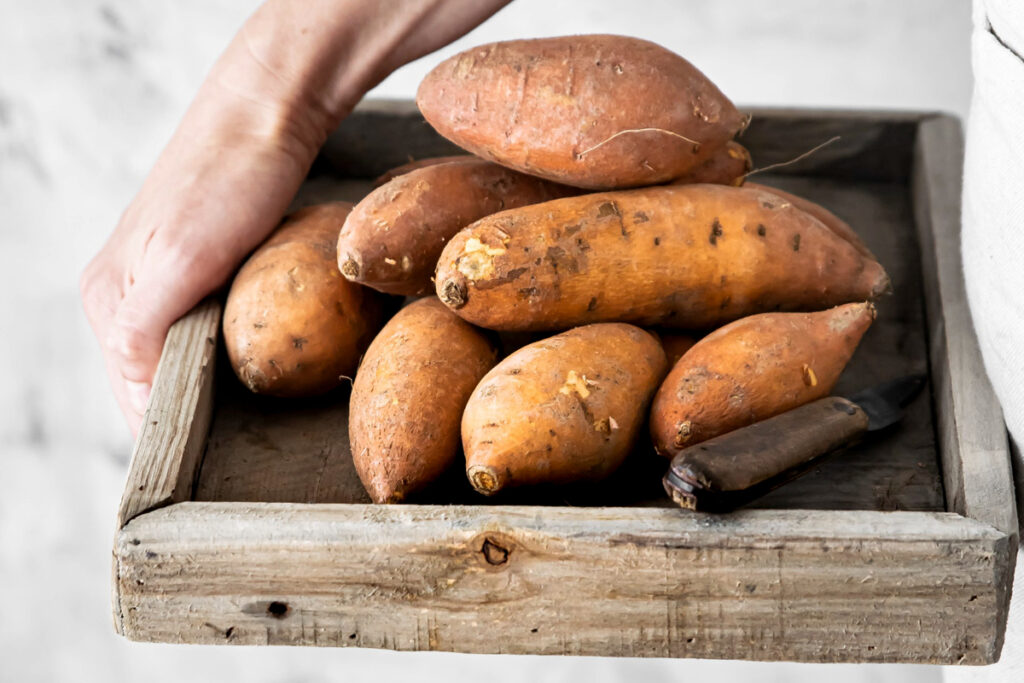
Sweet potatoes are another excellent source of beta-carotene, like carrots. This nutrient is crucial for preventing dry eyes and promoting good vision, especially in low-light situations. Sweet potatoes are also rich in vitamin E, an antioxidant that helps protect the eyes from oxidative damage.
Regularly eating sweet potatoes can help keep your eyes moist and healthy. Roasted sweet potatoes, mashed, or added to salads, they offer a tasty and healthy way to improve your eyesight. Having them in your diet is an easy step toward better vision.
Eggs

Eggs, particularly the yolks, are an excellent source of lutein, zeaxanthin, and vitamin A. These nutrients work together to protect the retina and prevent age-related vision loss. The lutein and zeaxanthin in eggs also help reduce the risk of cataracts.
Eggs are easy to incorporate into your diet, whether boiled, scrambled, or used in various dishes. Eating eggs regularly can help improve your eye health and protect against harmful light. They are a convenient and nutrient-rich food that supports strong vision.
Salmon

Salmon is rich in omega-3 fatty acids, which are essential for maintaining the health of your retina. Omega-3s help prevent dry eyes and reduce the risk of age-related macular degeneration. Salmon is also a good source of vitamin D, which plays a role in protecting your eyes from inflammation and damage. Including salmon in your diet at least twice a week can significantly boost your eye health. Grilled, baked, or added to salads, salmon is a tasty way to protect your vision. It’s a powerful superfood for your eyes.
Kale
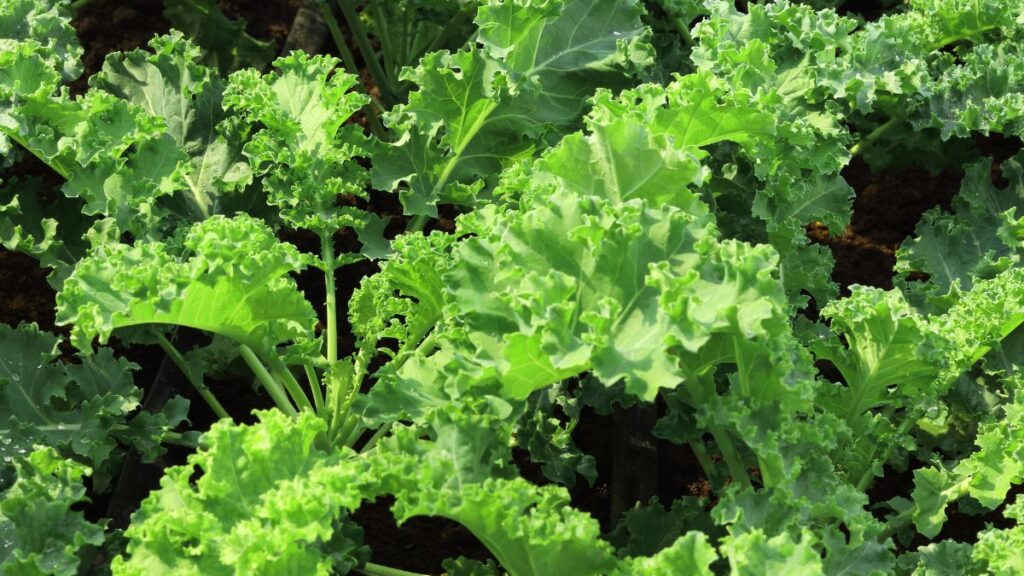
Kale is a leafy green that is high in lutein and zeaxanthin, which are crucial for protecting your eyes from UV damage and blue light exposure. These antioxidants help prevent cataracts and macular degeneration. Kale is also rich in vitamin C, which promotes healthy blood vessels in the eyes and reduces the risk of developing cataracts.
Regular consumption of kale can help improve your vision and protect your eyes from future damage. You can add kale to smoothies, salads, or stir-fries for a nutrient boost. It’s a great way to keep your eyes healthy and strong.
Almonds
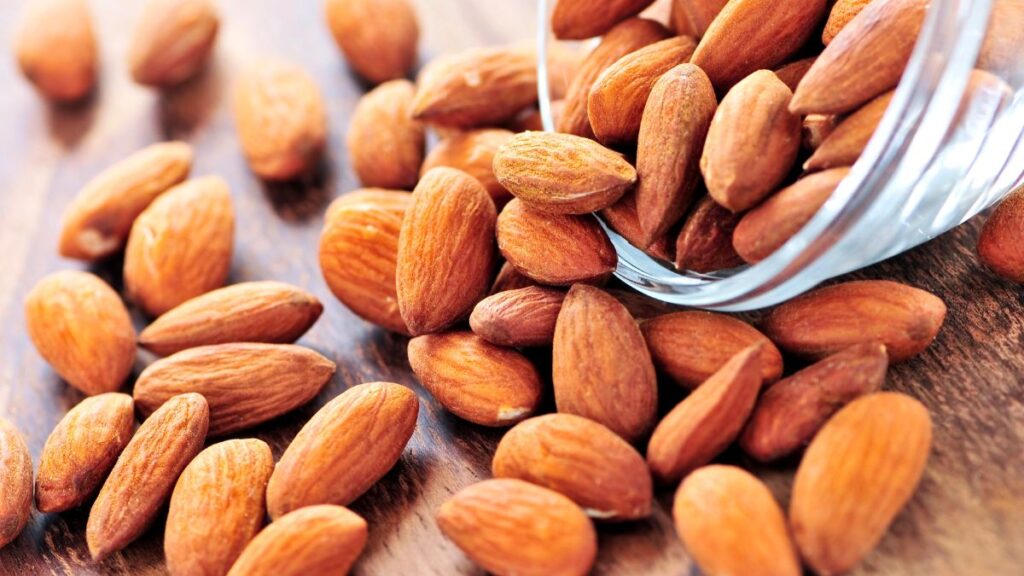
Almonds are an excellent source of vitamin E, an antioxidant that protects your eyes from free radicals that can cause damage. Vitamin E is known to slow down the progression of age-related eye conditions like cataracts and macular degeneration.
A handful of almonds a day can give you the necessary amount of vitamin E for better eye health. They are a convenient snack and can be added to oatmeal, yogurt, or salads for extra crunch. Including almonds in your diet can help protect your vision in the long run.
Citrus Fruits

Citrus fruits like oranges, lemons, and grapefruits are packed with vitamin C, an essential nutrient for eye health. Vitamin C helps keep the blood vessels in your eyes healthy and reduces the risk of cataracts. These fruits also help in regenerating other important antioxidants in the eyes, which protect against damage from free radicals.
A daily intake of citrus fruits can improve your overall eye health. They are refreshing and easy to blend into your diet through juices, salads, or as a snack. Citrus fruits are a tasty way to care for your eyes.
Bell Peppers
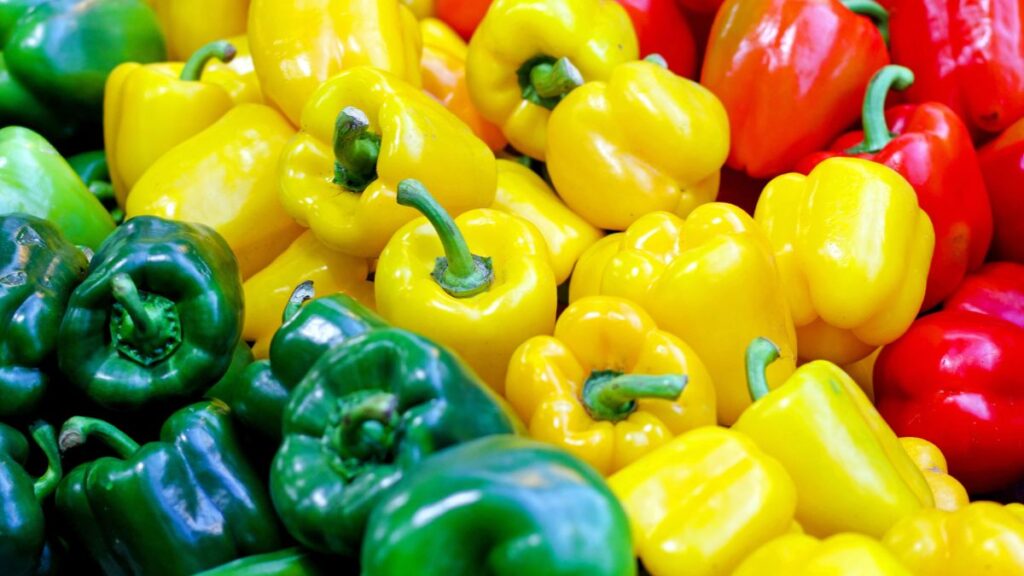
Bell peppers, especially the red and yellow varieties, are rich in vitamin C, which is crucial for maintaining healthy eyes. They also contain lutein and zeaxanthin, which protect the retina from damage caused by blue light.
Eating bell peppers regularly can help prevent cataracts and age-related macular degeneration. You can enjoy bell peppers raw in salads or cooked in stir-fries and other dishes. Having them in your meals can give your eyes the nutrients they need to stay healthy.
Broccoli
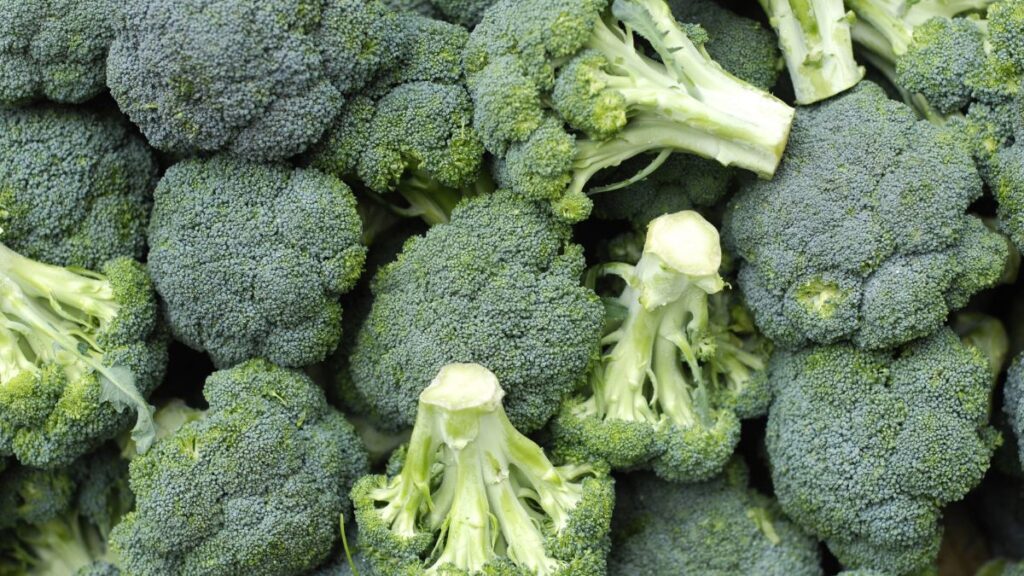
Broccoli is another green vegetable that is packed with eye-friendly nutrients. It contains high levels of lutein, zeaxanthin, and vitamin C, which help protect the eyes from oxidative stress and damage. Broccoli also has sulforaphane, a compound that helps shield the eyes from harmful UV radiation.
Eating broccoli regularly can improve your overall eye health and protect against age-related vision issues. Add broccoli to soups, salads, or stir-fries for a nutrient boost. It’s a simple way to keep your eyes healthy.
Walnuts
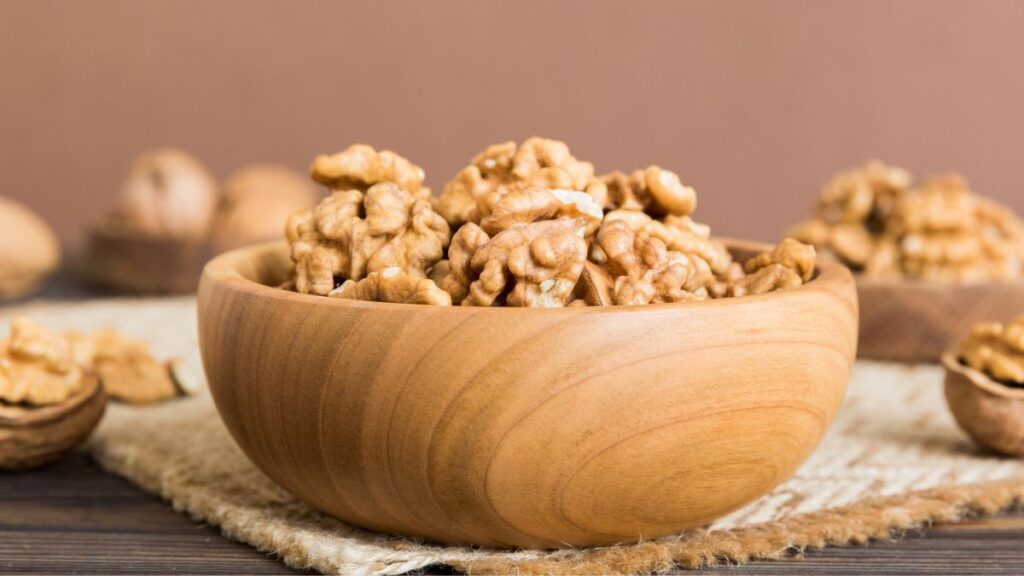
Walnuts are rich in omega-3 fatty acids, which help protect the eyes from dry eye syndrome and age-related macular degeneration. They also contain vitamin E, which fights inflammation and helps maintain healthy vision.
Eating a handful of walnuts regularly can give your eyes the nourishment they need to stay strong. Walnuts are easy to add to your diet as a snack or in salads, cereals, and baked goods. They are a great source of eye-boosting nutrients and an easy way to support your vision.
Avocados
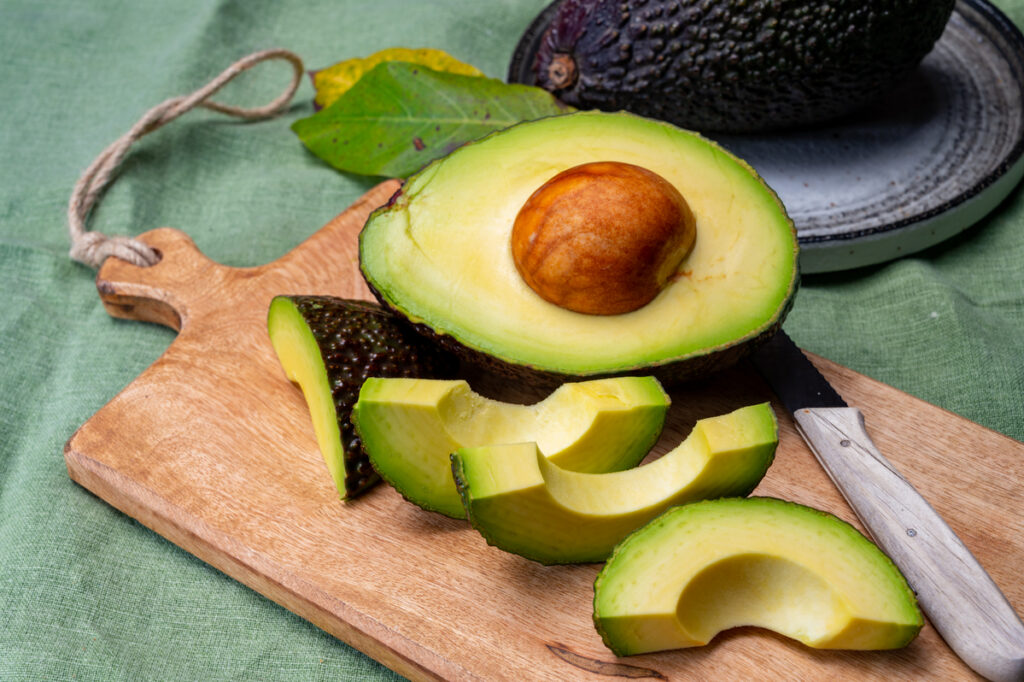
Avocados are loaded with lutein, which helps prevent macular degeneration and cataracts. They are also rich in vitamin E, which protects the eyes from oxidative damage. Avocados promote healthy blood flow to the eyes, keeping the tissues nourished and strong. Adding avocados to your diet regularly can help improve your eye health and overall vision. You can enjoy them in salads, spreads, or smoothies. Avocados are a creamy and delicious way to protect your eyesight.
Sunflower Seeds
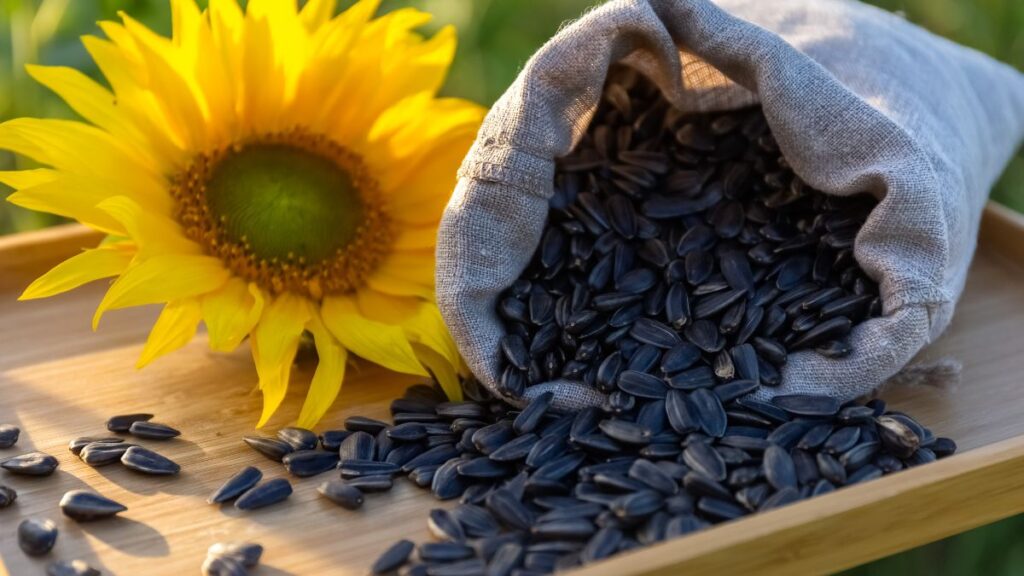
Sunflower seeds are an excellent source of vitamin E, which helps protect the eyes from damage caused by free radicals. Vitamin E plays a key role in slowing down the progression of age-related eye diseases like cataracts and macular degeneration. Eating a handful of sunflower seeds regularly can improve your eye health. They make a great snack or can be added to salads, oatmeal, or yogurt. Sunflower seeds are a convenient and tasty way to support your vision.
Tomatoes
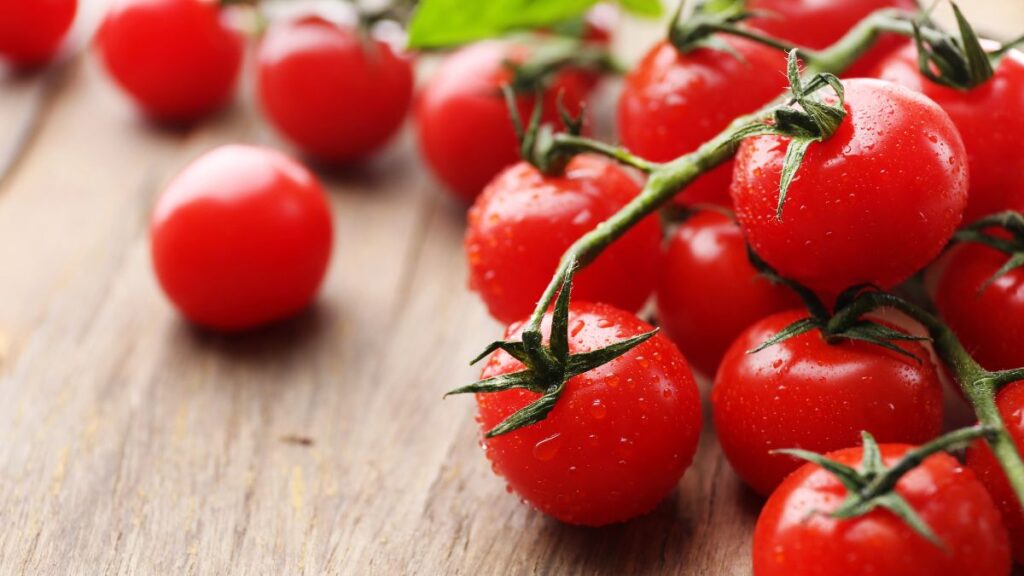
Tomatoes are rich in lycopene, an antioxidant that helps protect the eyes from damage caused by light exposure. Lycopene has been shown to reduce the risk of macular degeneration and cataracts. Tomatoes are also a good source of vitamin C, which keeps the blood vessels in the eyes healthy. Including tomatoes in your diet can help protect your vision and reduce the risk of age-related eye issues. You can enjoy them in salads, sauces, or soups. Tomatoes are a versatile and delicious way to support your eye health.
15 Grocery Items to Stock Up On Before Winter Price Hikes

As winter draws near, temperatures rise, as do grocery prices. The colder months often bring higher food costs due to increased demand, supply chain challenges, and seasonal shortages. To avoid the shock of winter price hikes, stock up on certain pantry staples and essential items.
15 Grocery Items to Stock Up On Before Winter Price Hikes
15 Places Where You’re Expected to Tip—But You Really Don’t Have To

Tipping has become a widespread practice in many industries, with the expectation that you’ll leave a little extra for good service. However, not every situation truly warrants a tip, even if you feel pressured to give one.
15 Places Where You’re Expected to Tip—But You Really Don’t Have To







